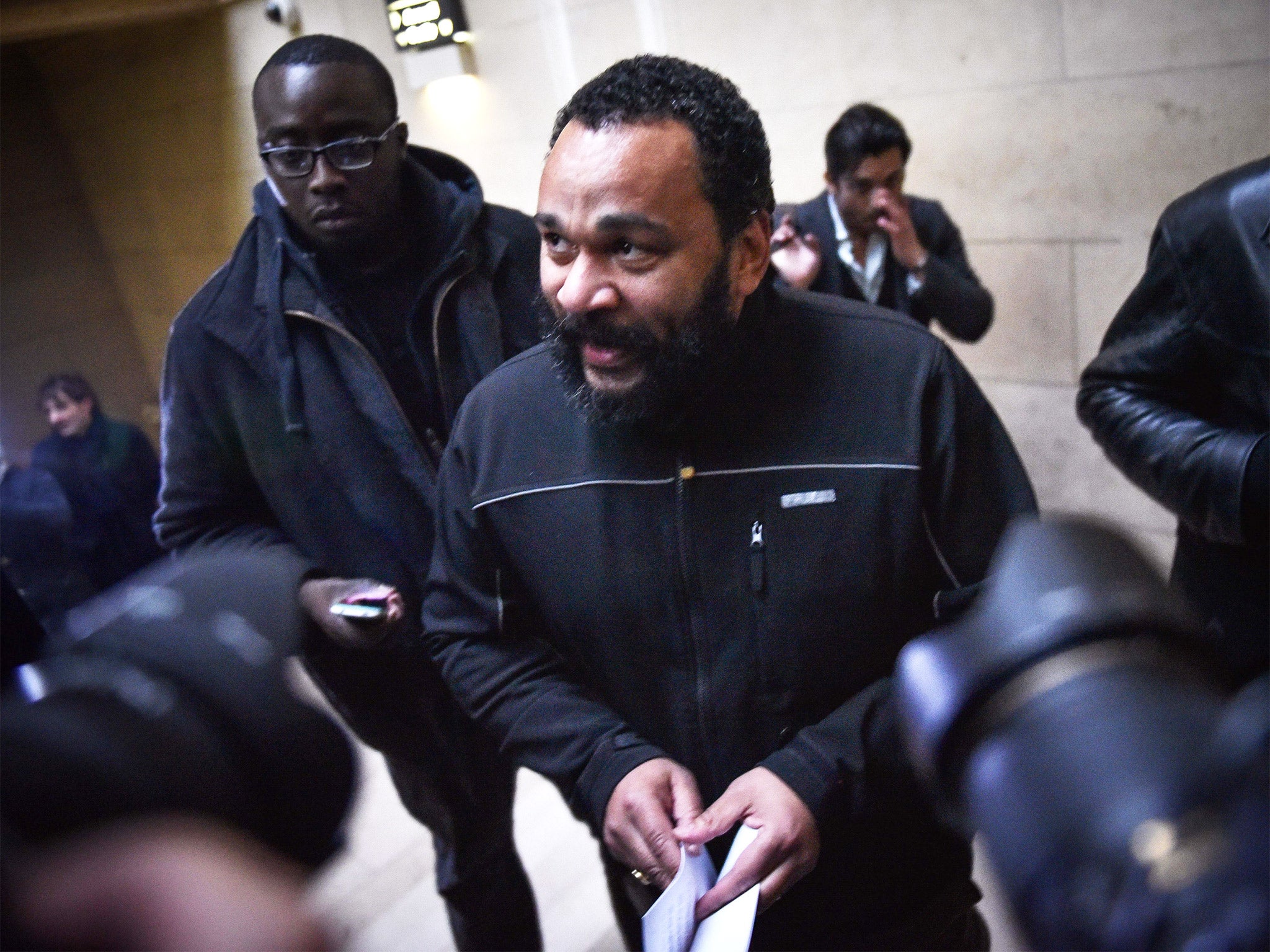French comedian Dieudonné given suspended sentence over Charlie Hebdo joke
The comedian is the most high-profile defendant so far in a series of prosecutions on the basis of 'apology for terrorism'

Your support helps us to tell the story
From reproductive rights to climate change to Big Tech, The Independent is on the ground when the story is developing. Whether it's investigating the financials of Elon Musk's pro-Trump PAC or producing our latest documentary, 'The A Word', which shines a light on the American women fighting for reproductive rights, we know how important it is to parse out the facts from the messaging.
At such a critical moment in US history, we need reporters on the ground. Your donation allows us to keep sending journalists to speak to both sides of the story.
The Independent is trusted by Americans across the entire political spectrum. And unlike many other quality news outlets, we choose not to lock Americans out of our reporting and analysis with paywalls. We believe quality journalism should be available to everyone, paid for by those who can afford it.
Your support makes all the difference.French comedian Dieudonné M’Bala M’Bala has been found guilty of "apologising for terrorism" for a joke posted on his Facebook account shortly after jihadist attacks in and near Paris.
The entertainer, 48, was handed a two month suspended sentence over the message. He risked up to seven years in prison and a potential €100,000 ($106,000) fine.
Dieudonné – who has been fined multiple times by French courts for hate speech – wrote just days after the attacks that left 17 people dead and on the eve of a huge public march of solidarity, that he felt like "Charlie Coulibaly".
The words were a play on the "Je suis Charlie" slogan which was used as a display of solidarity for the victims of the attacks at the Charlie Hebdo magazine headquarters.
Amedy Coulibaly killed one policeman and four Jews during a raid on a Jewish supermarket after the Charlie Hebdo massacre by two gunmen.
By calling himself "Charlie Coulibaly", Dieudonné said in court, he was trying to make a "peaceful" point, which had been "taken out of context".
He argued he was actually saying that he was a martyr to freedom of speech like Charlie Hebdo, but was treated by the government and the French media as if he were a terrorist like Amédy Coulibaly.
The comedian stated that his remarks had been useful in staring a "debate" in France on the true limits of freedom of speech.
The comedian is the most high-profile defendant so far in a series of prosecutions on the basis of "apology for terrorism" since the jihadist killings in Paris.
Dieudonné has been found guilty seven times for slander or anti-Semitic statements, while his shows have been banned by some local authorities.
Authorities say he owes thousands of euros in fines related to past convictions, and is branded as a “peddler of hate” by the French government.
The comedian, who insists he is not anti-Semitic, has been credited with inventing the "quenelle", a gesture critics have likened to an inverted Nazi salute.
Supporters of Dieudonné, as well as many who find his humour distasteful, have accused French authorities of double standards when the comedian was briefly arrested and charged just days after millions of people took to the streets across France, defending free speech and condemning the Charlie Hebdo attacks.